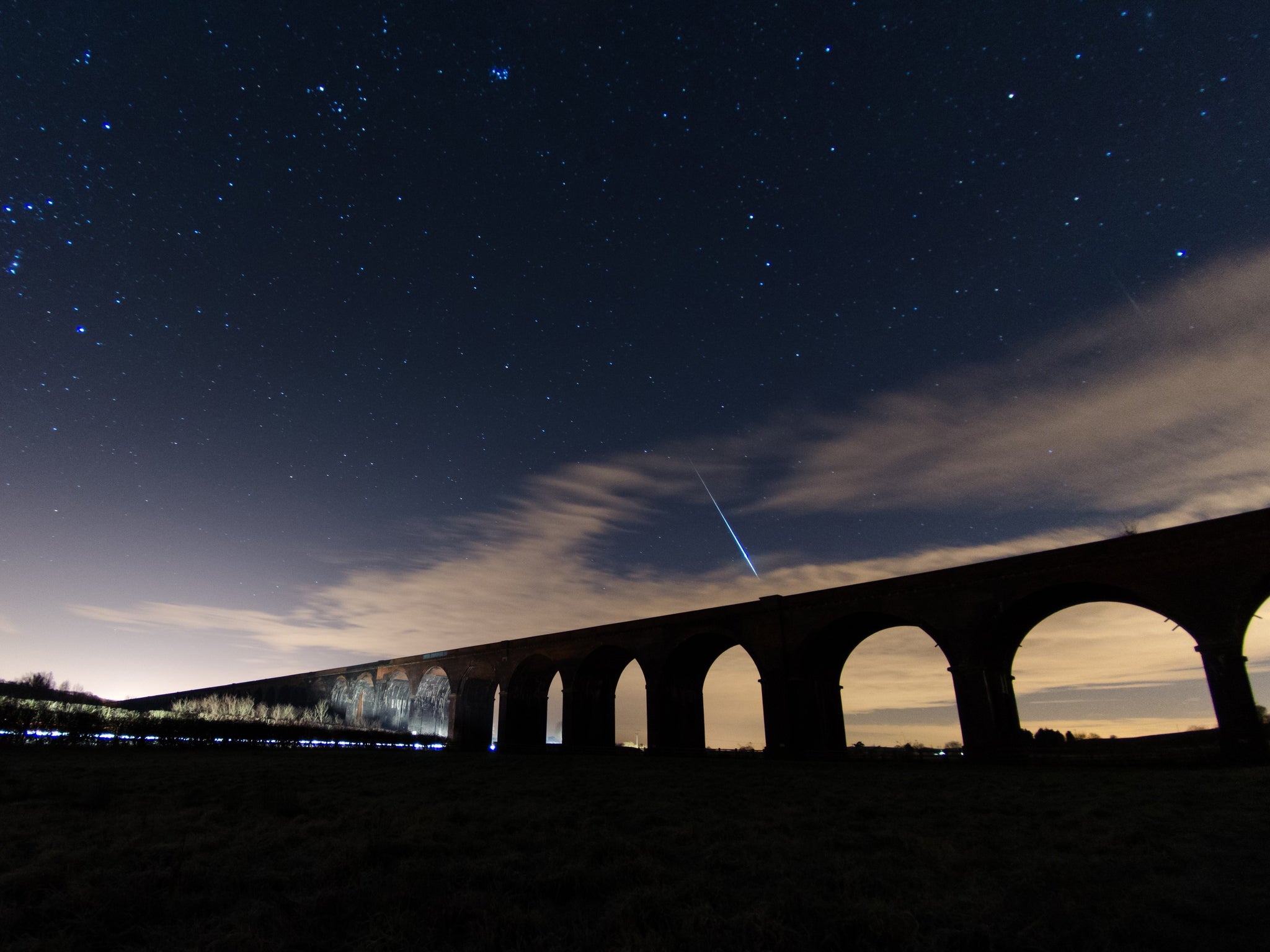Geminids meteor shower 2014: See the spectacular images of shooting stars lighting up the night sky
The annual shower is thought to have produced up to 100 shooting stars an hour at its peak

Your support helps us to tell the story
From reproductive rights to climate change to Big Tech, The Independent is on the ground when the story is developing. Whether it's investigating the financials of Elon Musk's pro-Trump PAC or producing our latest documentary, 'The A Word', which shines a light on the American women fighting for reproductive rights, we know how important it is to parse out the facts from the messaging.
At such a critical moment in US history, we need reporters on the ground. Your donation allows us to keep sending journalists to speak to both sides of the story.
The Independent is trusted by Americans across the entire political spectrum. And unlike many other quality news outlets, we choose not to lock Americans out of our reporting and analysis with paywalls. We believe quality journalism should be available to everyone, paid for by those who can afford it.
Your support makes all the difference.Stargazers defied the freezing outdoor temperatures on Saturday night to witness one of the most spectacular astronomical events of the year: the Geminids meteor shower.
Named because it appears to be coming from the constellation of Gemini, the meteor shower is thought to have produced between 50 and 100 shooting stars an hour, including rapid bursts of two or three, which glowed in different bright colours.
Astronomers said last night’s weather conditions were close to perfect for the annual display, and by midnight in London bright meteors were already seen streaking across the night sky.
Meteors should have been visible throughout the night from about 10pm, with the best time to catch the spectacle thought to have been around 2am.
The Geminids has been lighting up the sky since last weekend, but the shower reached its fiery peak last night, which was expected to be best seen in East Anglia, Yorkshire and the North East, due to the clear weather in those parts of the UK.
Join our commenting forum
Join thought-provoking conversations, follow other Independent readers and see their replies
Comments